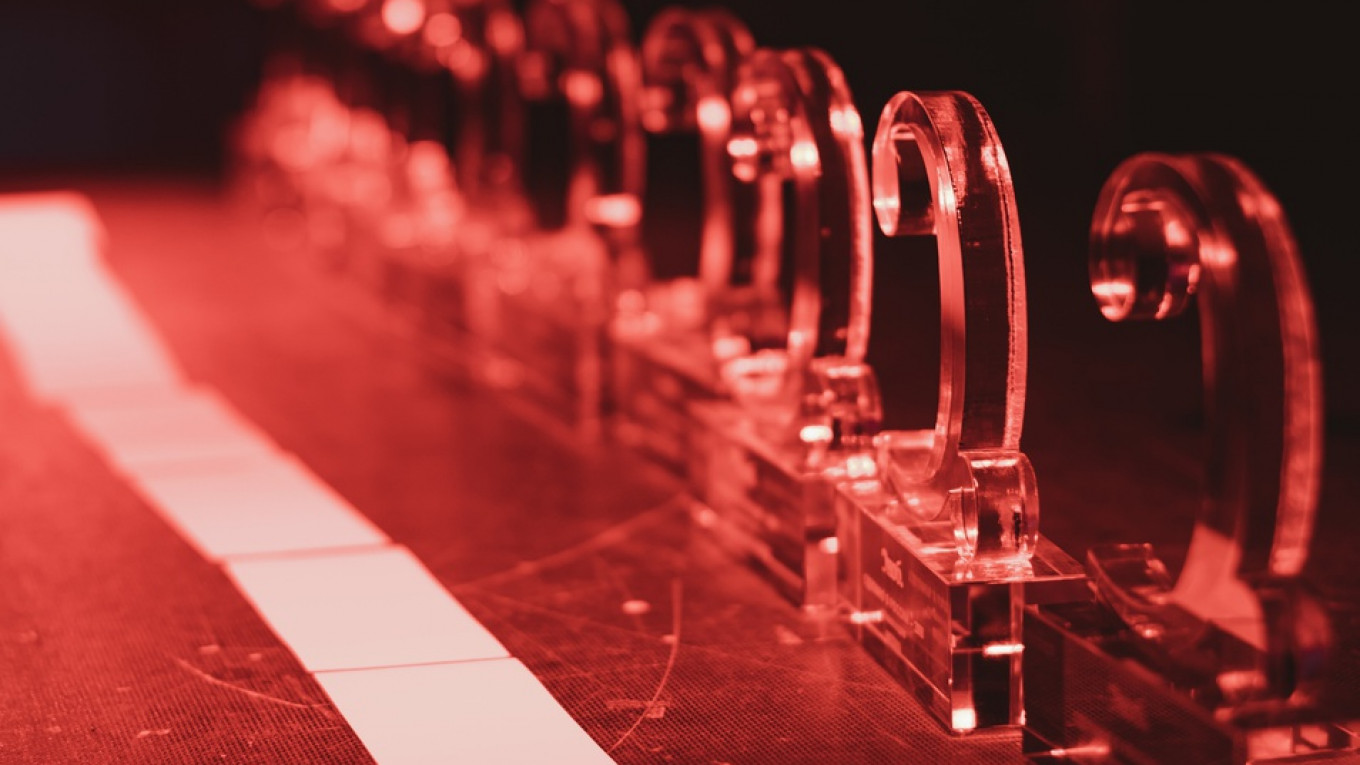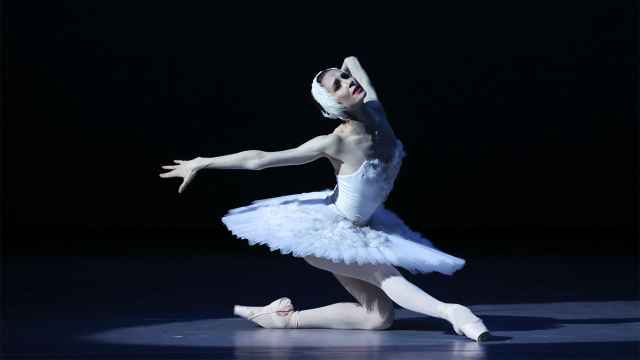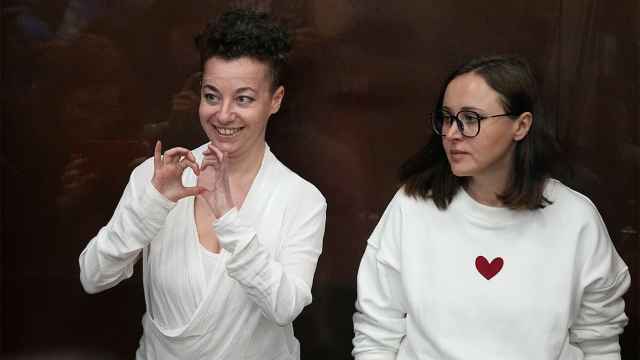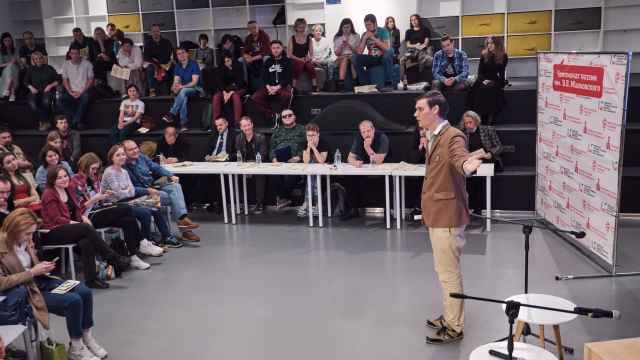Last week Snob magazine hosted its “Made in Russia” awards for the seventh time. And since Snob is celebrating its ten-year anniversary this year, the ceremony, which took place at the Historical Museum on Red Square, had special significance.
The “Made in Russia” prizes are awarded to the best that was produced in the fields of culture, science, business, and society during the past year. The winners were decided by the readers of Snob, who voted online for nominees selected by an expert committee.
Marina Gevorkian, Snob’s CEO, noted that the nominees and winners of the “Made in Russia” awards are “changing the life of our country for the better. We hope that someday they will be celebrated on the other side of the Red Square” – meaning, of course, the space occupied by the Kremlin.
The organizers turned the ceremony into an interactive theater performance devoted to Snob’s most prominent stories and interviews reported over the last ten years, including those by film director Alexander Sokurov, businessman and philanthropist Mikhail Khodorkovsky, physicist Sergey Kapitsa and many others.
Director Savva Savelyev installed a catwalk in the middle of the hall where the postmodernist performance took place. Interviews were given new interpretations in many genres -- from a rave to a rap concert to a reading by an actor. Some of the performers were very young -- just ten years old when Snob was launched.
And the winners are...
In the nomination called “Big Country,” Natalia Fishman from Kazan was awarded for her “Program for Public Spaces Development in the Republic of Tatarstan.” Over the past four years, Fishman oversaw the creation of 315 parks, embankments, boulevards and squares in 60 cities and villages of Tatarstan.
Among other notable nominees in the “Big Country” category were the new creative cluster in Tula “Oktava” (Octave), which houses the first in Russia Museum of Industrial Machines, and the new recreation zone in Krasnodar, the first city park created with private money, funded by entrepreneur Sergei Galitsky, former owner of supermarket chain Magnit.
The projects nominated in the category of “Museums” were all worthy of awards this year. They included the Tretyakov Gallery with its recent blockbuster exhibitions - a retrospective of Vasily Vereshchagin and a multi-artist exhibition devoted to the 1917 Revolution; AZ Museum for its “Solaris” exhibition in Florence; and “Petrushestviye” - a MMOMA exhibition devoted to the 80th birthday of Lyudmila Petrushevskaya, one of the most acclaimed Russian writers.
In the end, the award went to a group of curators of the V-A-C Foundation and Moscow Museum of Modern Art (MMOMA) for the three-part exhibition “General Rehearsal.” The exhibition was literally a “rehearsal” for a grand opening of a new museum in Moscow – V-A-C Foundation’s space at the revamped GES-2 power plant. It was also a “rehearsal” in a a more literal sense, since it followed the structure of a theatrical production and was divided into three acts.
In another win for Tatarstan, Guzel Yakhina got the “Literature” award for her second novel and instant bestseller “My Children” about the life of Germans in the Volga region.
In the nomination “Cinema and Theater,” the award went to director Andrei Moguchy, a pillar of St. Petersburg theater and the art director of the Tovstonogov Bolshoi Drama Theater (BDT). Moguchy was awarded for his production "Three Fat Men," the most ambitious in the history of the BDT. Based on a children’s fairytale by Yuri Olesha, it takes place in a dystopian society where revolution is brewing.
Among other candidates were embattled theater and film director Kirill Serebrennikov, who has been under house arrest for more than a year, both for his film “Leto” and the Bolshoi Theater ballet “Nureyev.”
Another nominee was Sergei Dvortsevoi for his film “Ayka,” which won a surprise Award for Best Actress at the last Cannes Film Festival.
The “Media” award went to Vera Krichevskaya and Ksenia Sobchak for their documentary film "Delo Sobchaka" (called “The Case” in English). The film is about Ksenia Sobchak's father Anatoly Sobchak, a controversial liberal democratic politician and the first mayor of St. Petersburg.
ROSNANO Company and its CEO Anatoly Chubais won in the “Business” category for development of alternative energy sector, while Vera Hospice Support Fund got the award in the “Social Project” nomination.
Last but far from least, the Grand Prize went to the Organizing Committee of the World Cup “Russia-2018.” The prize was received by General Director Alexei Sorokin, who noted that the most pressing question for him was “how the world championship would change our country. And would it? How much can the growth of the popularity of football can change us as a nation?”
On that note, the guests filed out, perhaps to contemplate the role of sports in Russia's further development.






